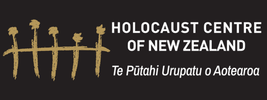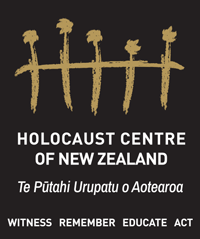|
“All Poland was in the Jews’ hands.”
“Are they [the Poles] glad there are no more Jews here or sad?” “It doesn't bother them. As you know, Jews and Germans ran all Polish industry before the war.” “Did they [the Poles] like them [the Jews] on the whole?” “Not much.” The above exchange appears about halfway through Claude Lanzmann’s documentary on the Holocaust, Shoah, as Lanzmann interviews a Polish witness about the Holocaust. The attitudes displayed here, although not uncommon at the time, have recently become the centre of a historical and legal controversy in Poland. On January 26, 2018, Poland passed a new law making it illegal to blame the “Polish nation” or “Polish state” for atrocities committed as part of the Holocaust. Since then, the Israeli government, the U.S. State Department, and prominent academics and scholars have all criticised the Polish Government for abridging academic freedoms and freedom of speech. What is truly concerning beyond the issue of civil liberties is the a-historicity of the Polish claim. While the Polish State did not actually exist between 1939 and 1945 (when the country was occupied by Nazi Germany), significant segments of Polish society were anti-Semitic and many Poles complicit in the crimes of the Holocaust. Those entities which comprised the Polish nation – local government, popular opinion, militant partisans – often collaborated with the Nazis. Christopher Browning’s Ordinary Men contains anecdotes of how Polish officials worked with a German police battalion tasked with murdering Jews; the wartime massacres of Jews by Poles in Jedwabne, Gniewczyna Łańcucka and elsewhere displayed the depth of anti-Semitic opinion; and the country’s largest anti-Nazi partisan group, the Polish Home Army, frequently rejected Jewish volunteers. In the years since, Poland has failed to genuinely come to terms with these facts. Under Communist rule, Poles were largely taught that they were untainted by the Holocaust. But the opening of archives and the collapse of ideological borders that accompanied the end of the Cold War has exposed this – and us – to new facts and new ways of thinking about Poland and the Holocaust. There are in Polish academia, for example, few texts such as Karl Jaspers’ foundational “On the Question of German Guilt”, or little public discussion of collective responsibility. Within the Polish national self-conception, a clear gap exists in relation to the treatment of Jews between 1939 and 1945. This in no way ascribes blame to every individual Polish citizen for the crimes of the Holocaust. Indeed, more Poles have been honoured as ‘Righteous Among the Nations’ for their service to the Jews during the Holocaust than any other single nationality. Rather, we seek to open up the conversation to nuance and balance and support the work of historians in accurately identifying institutional and systemic anti-Semitism in wartime Poland. To deny these social structures ever existed, or that they did not impel the Polish nation towards collaboration and acts of genocide, is to engage in a form of Holocaust denial. We can simultaneously appreciate the great lengths Polish nationals went to in order to save Jewish lives and understand that, on the whole, Poland bears some responsibility for the crimes of the Holocaust.
1 Comment
debbie waldin
7/8/2019 03:16:45 pm
WOW, that is information I knew nothing of and I found this enlightning
Reply
Leave a Reply. |


